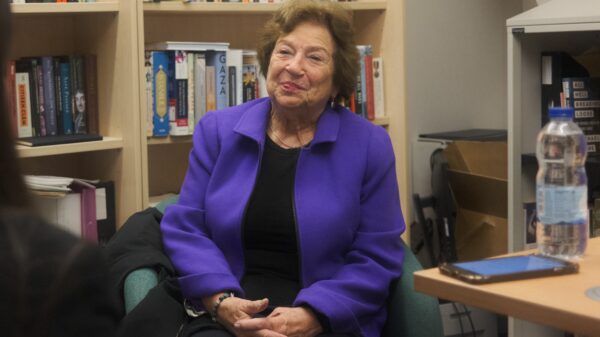Staff Writer Ishan Garg reflects on how his first-week university encounters prompted him to rethink the established social approach to names.
The first week of university has limped to an end some time ago now. A tiring one to say the least, socially overwhelming more than anything. Usually quick to blame my social battery, I think I can safely say that the endless barrage of freshers’ events (and QR codes) is the cause. A corollary of attending this never-ending line of activities is that the little time I have to myself in my cupboard of a room is invariably spent thinking about the people and cultures I have come across during the week. This happens partly because the alternative involves reading hudreds (tens) of pages of 14th-century English, written by people who characteristically attempt to write in the most pretentiously inaccessible way possible, and partly because every time I try to study, I’m out cold within fifteen minutes. Thinking back across the week, somewhere in between all the bonjours, holas and guten tags, there is something that unites all the people I have come across: the awkward silence that follows the standard “I didn’t catch your name the first time” or “what’s your name again?” when you come across somebody you’ve met previously. Given that I haven’t been at my sober best during most of the events, I try to blame the alcohol. Unfortunately, I think it is time I start accepting that my memory is at fault after somehow managing to forget how to kick a ball straight during trials.
Admittedly, quite a few things have puzzled me during freshers, whether it’s the necessity to wave or smile as you walk past somebody you have met very briefly or the pressure to make conversation with whoever you happen to be sitting next to during induction or another freshers event. However, the social necessity of having to remember somebody’s name perplexes me the most. The reason I take particular issue with it is that official names are often so divorced from their bearers. Despite being a major identifier and axiomatically forming part of any individual’s identity, they are banal to the extent of not reminding us of the person at all despite having identification as their primary purpose. Even more so, each generation tends to have naming trends, be it Will, Olivia or, god forbid, Ishan – not only does that further genericise people, but also defeats the purpose of language by tossing around words without conveying anything at all. The reason this defeats the purpose of language is because words are inherently meant to mean something and hopefully have some purpose beyond just identification. Names have the potential to assert and express one’s identity and taste, much like the clothes we choose. They could reflect the relationships individuals have with those who use them and yet their use remains confined by tradition.
Another major reason I believe in this expansion or evolution of names beyond those assigned to us at birth is that each person views another in their own unique way. Each of us is known differently by different people, and even by the same individual across time. Thus, we are polyonymous. To somebody, a person might be their best friend who fell into the pool drunk and to somebody else a holier-than-thou prick. One name will unfortunately never be able to reflect that. However, an identifier driven by my association with the individual, whether it’s the guy who rolls cigarettes horribly, the girl with four-pound soju, the dude who puked into the Thames or the girl who can’t walk straight, would evince some of the most memorable parts of our relationship. More importantly, it would allow them to be defined by their actions and choices that they themselves have actively made as opposed to being unconsensually confined to another genericised box. These names will also be reflective of the ever-evolving nature of human relationships, continually changing as I hopefully get to know each of these people better.
In conclusion, this piece is not only a plea for my improved memory and increased academic rigour, but rather, one for names, as a concept, to evolve beyond their current underutilised state. My basis for this is two-fold. Firstly, our current approach towards them is vapid and secondly, there is a much more suitable as well as accessible alternative. The simple reason that the alternative is more suitable is because it is innately and inconveniently human. Under this approach, individuals are given there requisite autonomy and freedom, truly allowing them to be who they want to be while also giving names the liberty to evolve. Thus, the proposed solution mirrors the human experience because what else is more human than constant change.










